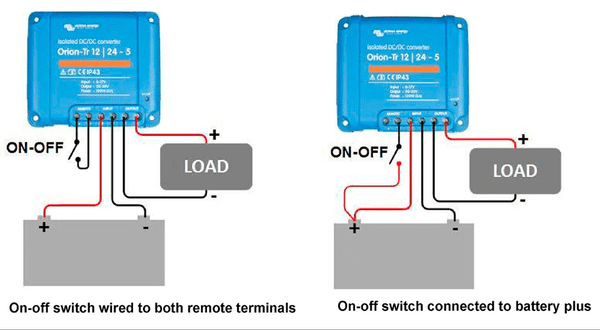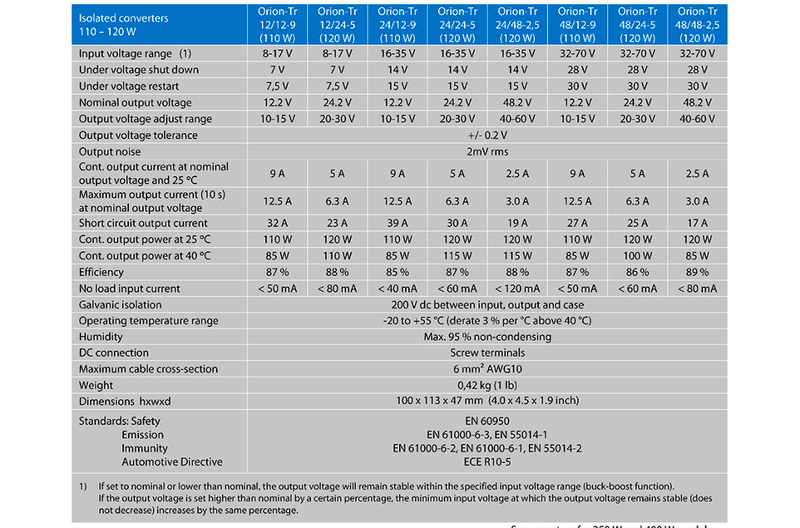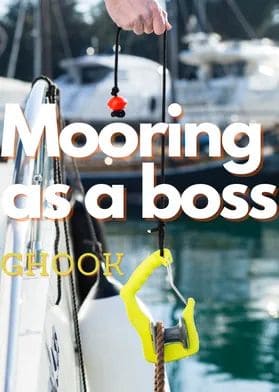DC-DC ConvertersProducts found: 22
Sale of DC-DC Converters
This page features a catalog with prices for DC to DC converters that you can purchase on our marketplace. We offer delivery across Europe and other countries.
If you have any questions or cannot decide which DC to DC converter to buy, you can ask our staff through the contact details on the website.
About DC-DC Converters
A voltage converter is used when installing a yacht's power supply circuit under conditions of different voltages at the input and output. The principle of operation of the device is to convert direct voltage of one rating into constant voltage of another rating.
The need for DC-DC Converters is greatest if a generator or other autonomous equipment is used as a power source, which implies a risk of significant deviations of network parameters from the standards.
The DC/DC converter can provide voltages different from those used in your base system. Using a DC/DC converter, other voltages can be obtained. They also ensure that all your equipment has a stable power supply at the correct voltage.
Main Types of DC-DC Converters
Depending on the input and output voltage ratings, the following types of DC-DC Converters are distinguished:
- Buck converter: the output voltage is lower than the input value.
- Boost converter: the output produces a voltage higher than what is detected at the input.
- Buck-boost converter: solves charging problems in vehicles with smart dynamos.
Input voltage is the voltage of the power supply. The permissible input voltage range is the parameters under which the converter operates efficiently and stably.
The efficiency of a boat's electrical system decreases significantly if the difference between the input and output voltage is very large.
Converters with galvanic isolation of input/output and without galvanic isolation can be distinguished into a separate variety. In models without galvanic isolation, the input minus and output minus have an internal connection.
How to Connect DC-DC Converter to the System
Before connecting, check the input voltage range (written on the device) to determine the compatibility of the model you are using with your direct current (DC) network. Install the converter in a cool, dry and ventilated place.
Connect the negative terminal of the source to one of the negative terminals of the converter (the two negative terminals are connected to each other). Keep in mind that a poor negative connection can lead to overvoltage at the converter output.
Through a fuse, connect the “plus” of the source to the positive input terminal of the converter.
If necessary, connect an additional remote switch.
Adjust the output voltage relative to the input using the potentiometer.
If the output is protected against overload and short circuit, DC-DC Converter s can be connected in parallel. In this case, mandatory preliminary adjustment of the output voltage is required.
Check the voltage at the converter output. If the voltage is suitable for the equipment installed on the yacht, you can connect the equipment to the DC output of the converter through a fuse.
Please note that the input and output current may be quite high. Always use cables with sufficient cross-section. Do not connect the converter without input and output fuses!

How to Choose DC-Dc Converters for Your Yacht
Choosing the right DC-DC Converters for your boat will depend on several factors:
- quantity, types and energy intensity of electrical equipment and devices used on board;
- the size of the boat, which determines the branching and type of electrical system, including power sources (classical and alternative);
- number of passengers usually on board (water consumption, use of lights, air conditioning, TV, chargers, etc.)
- planned budget.
From this incomplete list of factors, it is already clear that you should select inverters with the appropriate voltage and power for your boat's electrical system, since using an inverter with the wrong rating can lead to problems.
When choosing marine converters, it is important to look for units designed specifically for marine use, as they will be more durable and better able to withstand the rigors of marine conditions.
Don't forget to budget for the cost of regular electrical system maintenance, such as inspections and possible replacement of DC-DC converters.
Examples of topRik Marketplace Offers
Since you are already on the topRik marketplace page, where DC-DC converters from one of the world's best manufacturers of marine equipment - Victron Energy - are presented, select different types of these converters according to the needs of your yacht.
- Like all Victron Energy products, DC-DC converters are initially designed for harsh operating conditions and have multi-stage protection systems. Voltage converters are protected from moisture in the form of embedded electronics in a compound. Protection level from IP43 and higher. For example, Orion IP67 DC-DC Converters are completely sealed: protected from water, shaking and fire. Their housings are made of cast aluminum; the electronics of the device are filled in the housing with a rubber compound.
- Thanks to synchronous rectification, efficiency at full load exceeds 95%.
- The range of converted voltage at the input/output is 12/24/48/96 V.
- Orion converters are available in models with both galvanic input/output isolation and without galvanic isolation. In models without galvanic isolation, the input minus and output minus have an internal connection.
- Remote switch. Using a remote switch eliminates the need for a high current input switch. The remote switch can work with a small power switch or a start-stop function switch.
- Adjustable output voltage: can be used as a battery charger. For example, you can charge a 12 V starter or accessory battery in a 24 V system.
- All models are short circuit protected and can be operated in parallel to increase the output current. You can connect an unlimited number of devices in parallel.
- For the models with 12 V and 24 V input, a fuse is installed at the input.
- Orion's high power non-isolated DC-DC converters can be used as a battery charger. A remote switch eliminates the need for a high current input switch. The remote switch can work with a small power switch or a start-stop function switch. All models with regulated output can be operated in parallel to increase the output current. You can connect up to five devices in parallel.
- Buck - Boost Converter DC - DC at 25 A / 50 A / 100 A for charging servo batteries on 12/24 V yachts and cars with smart generator.
- Almost all presented models have built-in Bluetooth.
topRik marketplace provides you with a unique opportunity to select options for DC-DC converters from Victron Energy and other leading marine equipment manufacturers that will precisely meet your yacht's electrical needs.
Please note that all models are accompanied by applications with detailed descriptions of the characteristics, such as in this table:

topRik experts will also provide you with free comprehensive advice on all converters presented in the marketplace.


